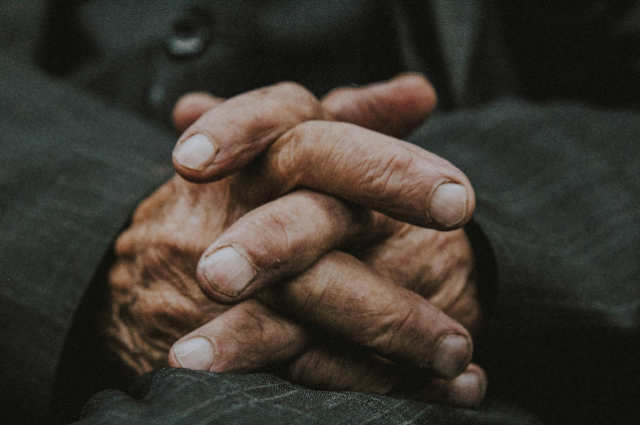
Photo by Zahra Amiri on Unsplash
The windows let in the morning sunlight, casting a warm glow on the bustling household. The comforting sounds of my mother's cooking filled the air, blending in with the far-off sound of my sister's online class. My father stood out, in stark contrast to the bustling atmosphere.
He was sitting on the bed contemplating, with his eyes fixated on the wall. Suddenly, he emerged from the bathroom, his face contorted in pain. He clutched his chest, his breaths coming in short gasps. My mother, alarmed, quickly fetched the blood pressure machine. But the pressure from the cuff only seemed to exacerbate his discomfort. Despite the pain, he insisted on having breakfast. He then began to prepare for a visit to the doctor.
As he reached for his wallet, his body convulsed. My mother, standing nearby, screamed his name. The sound of her terror pierced the air, pulling me away from my sister's class. I rushed into the room just in time to see my father collapse onto my bed, a place he had never lain before. My mother was in a state of shock, her eyes wide with disbelief. She urged me to seek help. I ran from door to door, but was met with wary glances and suspicion. Only a few elderly neighbours, who knew my father personally, offered their assistance. Among them was a woman, a doctor, who quickly assessed the situation. Her face was grave as she declared the situation serious and urged us to get him to a hospital. With that, she left, leaving us in a state of panic. I dialed the number for an ambulance, but the line was busy. The lockdown had strained the healthcare system, and with the surge in COVID-19 cases, ambulances were in high demand. It was only through the intervention of family and friends that we were able to secure one. The ambulance attendant arrived and asked my mother to step outside. He examined my father, then turned to us with a sombre expression. He declared my father dead. But my mother refused to accept his word. She demanded confirmation from a doctor, so we decided to take him to the hospital. My father was a large man, and moving him proved to be a challenge.
They dragged him on a bedsheet through the corridor and into the lift.
It was a heartbreaking sight, seeing a man of his stature treated in such a manner. At the hospital, the doctor refused to admit him, declaring him 'brought-dead'. My mother crumbled at the news. On the ride back, I tried to console her.
The sight of flies settling on my father's face was a stark reminder of the reality we were facing.
After the final rites, we transported him to the graveyard on a truck. Normally, the body would be accompanied by a crowd of mourners. But due to the suspicion of a COVID-related death, it was just me and my father.
I had my entrance exam in 15 days time, so despite the situation I found myself in, I had to get back to my studies the very day I buried my father. In the days that followed, relatives came to stay with us. Their presence was a comfort, but also a distraction from my studies for my upcoming entrance exams. I would retreat to my room to study while my cousins watched movies in the main hall. I was only 17 when all of this happened. My mother and sister were devastated, their grief palpable. I couldn't afford to wallow in my own sadness. Someone had to step up and take care of things. My sister, trying to be strong, kept her pain to herself. She didn't want to burden my mother with her grief. She began to look to me for support, seeing in me a replacement for the father figure she had lost.
My father had loved his fish, feeding them every night before bed. That task now fell to me. Each night, as I fed the fish, I was reminded of him. His absence was a void that could never be filled, but his memory lived on in the small rituals of daily life.
